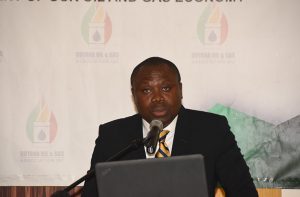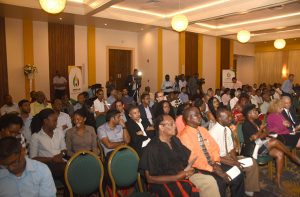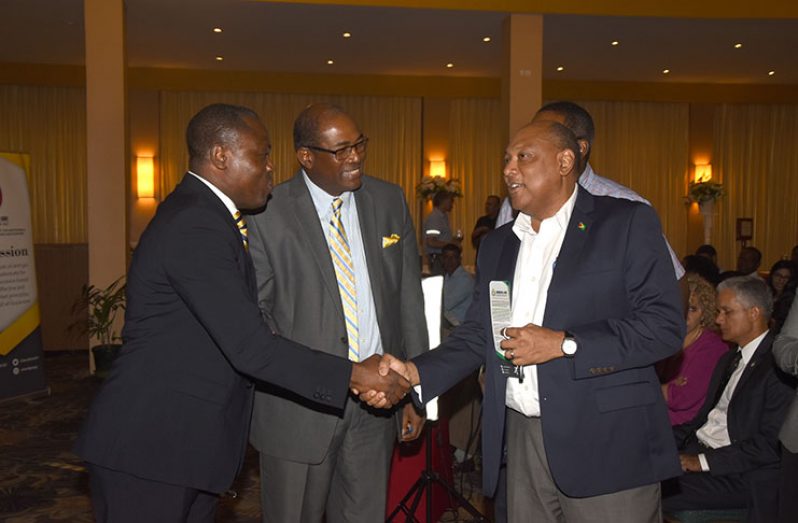–petroleum expert advises, to know what obtains as oil sector evolves
AS the sector evolves, Theophilus Ahwireng, former Chief Executive Officer (CEO) of the Ghana Petroleum Commission is suggesting that a diagnostic study be undertaken on the Guyanese economy as the sector develops.
Ahwireng was at the time delivering a lecture titled, “The National Petroleum Commission, resource management, governance and sustainable development of Oil and Gas: The Ghanian experience”, at the Pegasus Hotel on Monday evening.

The forum, which was organised by the Guyana Oil and Gas Association (GOGA), was well-attended and saw several government officials in attendance, among them including Minister of Public Infrastructure, David Patterson; Minister of Natural Resources, Raphael Trotman; and Minister of Business, Dominic Gaskin.
Ahwireng said that a very thorough examination of the structure of the economy, in terms of “what you have now” are among key factors which should be considered going ahead.
As an example, he said that Norway developed 90% of its power from water since it was in abundance even though it had petroleum discoveries. “So I believe that a way of dealing with it is to go through that effort,” he told the gathering, noting that he is aware that some moves are afoot in that regard.
As regards the quality of life to expect post-discovery, Ahwireng told the gathering that the oil sector contributes to just 10% of his country’s Gross Domestic Product (GDP). “It’s not like in other countries where it is high,” he said, noting that many questions have been raised in that regard over last few years.
One such question, he said, has to do with the magnitude of the contribution of oil to the country’s national economy. He said in Ghana, there is legislation with prescriptions for the monies to be spread along sectors of the country’s economy. “Therefore that is the first step in how it is used,” he said, noting that that in a number of ways, the impact of the finances are made transparent.

Ahwireng said directly and indirectly there are spin offs and revenue generated from the country’s oils sector and he added that it has created a number of jobs.
In terms of corruption, he said that there is a drive afoot to publish contracts publicly and he noted a public committee has responsibility for auditing the country’s oil revenues; these are published in the newspapers there he added.
The geophysicist also noted that negotiations for new oil blocs under the country’s new act are being undertaken by competitive bidding, a process which displays transparency.
Guyana is making preparations for first oil in 2020. Ever since US oil giant ExxonMobil struck oil in May 2015, moves have been afoot to strengthen those preparations, even as the oil company has made several subsequent oil discoveries in the Stabroek Block.



.jpg)








